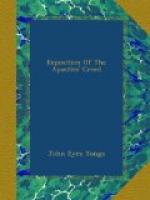The existence of God is the basis of all religious belief. If there is no God, there is no moral obligation. If there is no Almighty Being to whom men owe existence, and to whom they must give account, worship is a vain show and systems of religion are meaningless. Theologians, therefore, from the days of the first Christian apologists to our own time, have endeavoured to establish by proof the doctrine of the Divine existence. To those who accept the authority of Scripture the existence of God is a fact which no argument can overthrow; but as there are many who reject this authority, evidence has been sought elsewhere than in Scripture to establish the doctrine. The arguments for the Being of God are mainly threefold, being drawn: (a) from the consciousness of mankind; (b) from the order and design that are manifest in the universe; and (c) from the written revelation which claims to have come to men from God Himself.
(a) (Consciousness) There is a wonderful agreement among men as to the existence of a great invisible Being by whom the world was created and is governed, and who charges Himself with the control and guidance of its inhabitants and concerns. In a land such as our own, in which Christianity has held place for many centuries, belief in God, however it may fail to produce holy living, is almost universal. This belief exercises a strong influence, and has contributed not a little to the formation of our national character. It is an atmosphere always around us, sustaining and promoting the healthy life of those even who are the least conscious of being affected by it. The belief is indelibly impressed upon our laws, our literature, and even our everyday occupations. It is stamped upon the relations men sustain to one another. It is this which for one day weekly suspends labour that Christians may have leisure to worship God and to meditate upon the duties they owe to Him. It is in recognition of this that we see tall spires pointing heavenward, and churches opening their portals to the inhabitants of crowded cities and to the dwellers in scattered villages. In Christian lands the consciousness of men bears testimony to the existence of God, but it is not in such lands only that this consciousness exists and confirms belief in the Divine. In the earliest times, long before history began to be written, such a consciousness was prevalent, leading men to faith in and worship of a Being or Beings infinitely greater than themselves, present with them and presiding, though invisibly, over their destinies. The study of Comparative Religion has shown how nearly the primeval inhabitants of lands widely distant from each other were at one in the views they had come to entertain. Hymns, prayers, precepts, and traditions are found in the sacred books of the great religions of the East, and archaeologists have deciphered on ancient monuments, and traced in primitive religious rites, clear evidence of belief in the existence of the Divine.




